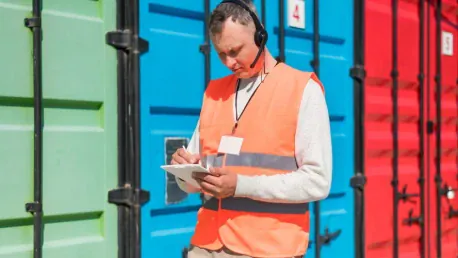The maritime industry is on the brink of a monumental shift driven by the innovative application of artificial intelligence (AI), which promises to transform safety management in unprecedented ways. Historically choked by intricate safety regulations and voluminous documentation, the industry has struggled with cognitive overload among seafarers. However, AI, epitomized by companies like WiseStella and their flagship Wise-AI, is innovating to tackle these challenges head-on. With the ability to analyze historic safety data and offer actionable insights, these AI solutions are reshaping how maritime safety protocols are approached while simultaneously easing the pressure on human operators and ensuring higher compliance standards.
Transformative Impact of AI on Safety Management
Alleviating Cognitive Burden on Seafarers
One significant improvement AI brings to the table is the reduction of cognitive burden on seafarers. Traditionally, seafarers have been inundated with complicated safety regulations that necessitate thorough documentation. This often leads to a considerable cognitive load, which in turn can adversely affect their performance and mental well-being. Wise-AI leverages large language models to interpret and analyze historical safety data, thus providing smart, actionable insights. What this means in practice is that during self-assessments, seafarers receive tailored recommendations designed to improve compliance and boost safety awareness. Consequently, this not only enhances the safety standards on board but also makes these regulations and documentation processes more manageable for the crew.
Beyond self-assessments, one of the critical elements of the maritime industry is maintaining up-to-date compliance with stringent international safety standards. Here, AI’s ability to offer precise, data-driven insights allows seafarers and fleet managers alike to navigate the labyrinthine requirements swiftly. This streamlined approach to safety protocols ensures that the crew can devote more time and focus to operations rather than being bogged down by paperwork. Furthermore, the personalized guidance provided by Wise-AI helps mitigate human errors and ensures that every crew member is acutely aware of safety norms, creating a safer and more compliant maritime environment.
Fleet-Wide Benchmarking and Improvement
AI provides remarkable capabilities for fleet-wide benchmarking, something that was historically arduous and fraught with inefficiencies. With AI, fleet managers can now easily compare their fleet’s safety performance against industry standards. This ability to benchmark is not just a passive observation; it actively identifies areas needing improvement, driving targeted interventions that can revolutionize safety outcomes. For instance, certain performance metrics that fall below industry standards can prompt the redistribution of resources, thereby addressing deficiencies more efficiently and ensuring consistent enhancement of safety protocols.
Moreover, this benchmarking data fosters a culture of continuous improvement within organizations. Managers can derive more significant insights and knowledge from this data, which in turn can be used to train crew members better, allocate resources more effectively, and implement new safety strategies. This data-driven approach ensures that fleet management is not based on intuition but grounded in solid, empirical evidence. Thus, AI plays an integral role in ushering in a new era of safety where proactive measures replace reactive approaches, setting new benchmarks for operational efficiency and resilience.
WiseStella’s Unique Approach to AI in Maritime Safety
Human-in-the-Loop System for Accuracy
One of the most innovative aspects of WiseStella’s AI technology is its human-in-the-loop system. This approach ensures the accuracy and reliability of AI-generated outputs by involving human oversight at critical junctures. Essentially, WiseStella has staffed in-house scientists who constantly refine the AI models, identifying emerging patterns and continuous industry-wide data updates. This hybrid system, blending human expertise with AI, ensures that the AI understands and adapts to the nuances of maritime safety requirements more effectively.
As a result, the AI becomes exponentially smarter over time. It integrates best practices from industry data while continuously learning from every new input it receives. This level of nuanced understanding and adaptation helps in developing more refined, reliable, and robust safety protocols. WiseStella’s human-in-the-loop system not only guarantees that AI-assisted recommendations are trustworthy but also ensures that they are practically applicable, enhancing overall safety standards in the maritime industry.
Shift from Reactive to Proactive Safety Measures
The maritime industry is poised for a significant transformation powered by the innovative use of artificial intelligence (AI), promising to revolutionize safety management in ways never seen before. Traditionally hampered by complex safety regulations and extensive documentation, the industry has often dealt with cognitive overload among its seafarers. Artificial intelligence, with companies like WiseStella leading the charge with their Wise-AI, is stepping in to address these issues directly. These AI solutions can analyze historical safety data and generate actionable insights, fundamentally altering how maritime safety protocols are managed. By efficiently streamlining these processes, AI reduces the burden on human operators, enabling them to focus more on critical tasks and improving overall compliance standards. This technological advancement not only enhances operational safety but also supports the well-being of seafarers, marking a new era of efficiency and reliability in the maritime sector.









